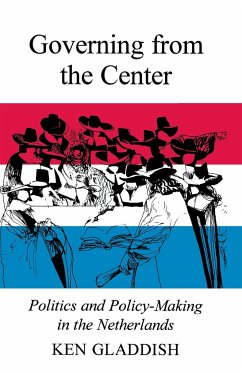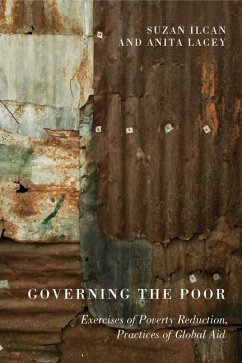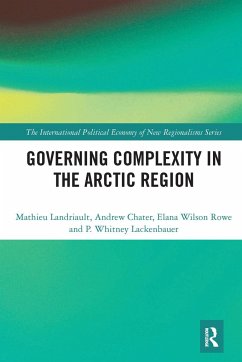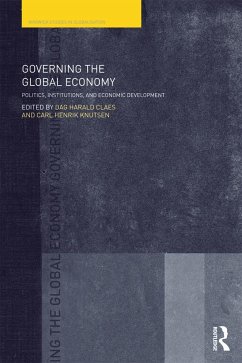
The Politics of Governing
A Comparative Introduction
Versandkostenfrei!
Versandfertig in 1-2 Wochen
128,99 €
inkl. MwSt.

PAYBACK Punkte
64 °P sammeln!
It&BAD:rsquo;s tough to keep students afloat in a sea of detail when moving from country to country in a comparative course. While it&BAD:rsquo;s important to give students a sense of place, lengthy textbooks can overwhelm them with far too much description. Students are left with no clear path for understanding regional context or for making meaningful cross-national comparisons, and little sense of larger concepts and themes.The Politics of Governing: A Comparative Introduction answers this dilemma in a truly brief text&BAD:mdash;only 320 pages long&BAD:mdash;that frames country case studies...
It&BAD:rsquo;s tough to keep students afloat in a sea of detail when moving from country to country in a comparative course. While it&BAD:rsquo;s important to give students a sense of place, lengthy textbooks can overwhelm them with far too much description. Students are left with no clear path for understanding regional context or for making meaningful cross-national comparisons, and little sense of larger concepts and themes.The Politics of Governing: A Comparative Introduction answers this dilemma in a truly brief text&BAD:mdash;only 320 pages long&BAD:mdash;that frames country case studies within regional chapters. This approach equips students to see the bigger picture and understand how the issues of governing can no longer be separated from events outside a country&BAD:rsquo;s borders. The authors answer the same set of questions in each chapter&BAD:mdash;What are the purposes of government (the ends of politics)? What do governments do (the functions of politics)? Who exercises political power (the processes of politics)?&BAD:mdash;giving this concise text strong analysis of particular countries within a powerful regional framework.The book incorporates the American experience as a familiar touch point for students and examines those areas of the world in which the U.S. is most engaged: The European chapters highlight the development of supranational institutions and their impact on politics in Great Britain, France, and Germany. These stand in contrast to the transitional politics underway to the east with Central Europe&BAD:rsquo;s new democracies and the upheavals in Russia, the Ukraine, and the Balkan states keeping those countries at the margins of this new Europe.The diversity of Asian governments is explored within the context of competing forces between markets and democracy, at the core of which stands mainland China.The forces of religion and culture across the Muslim world shape the chapter that encompasses North Africa, the Middle East, and Southeast Asia, with country case studies focused on Morocco, Iran, and Indonesia. The chapter on Latin America highlights the draw of North American markets and the appeal of distinctive political and economic patterns in South America, with case studies on Mexico and Brazil. A final chapter on regional convergence examines both developing countries and competing supranational markets to understand how people in countries caught in between larger, competing regional trading blocs are affected. NOW AVAILABLE!FREE online chapter on Sub-Saharan AfricaBy Philip Morgan, Monterey Institute of International StudiesVisit www.cqpress.com/cs/graham for access.Adding yet more depth, a free online chapter focused on sub-Saharan Africa places Nigeria at center-stage, while contrasting the cases of South Africa and Botswana, to explore the issues of weak and failed states, ethnic and religious strife, and responses to the HIV/AIDS epidemic.














